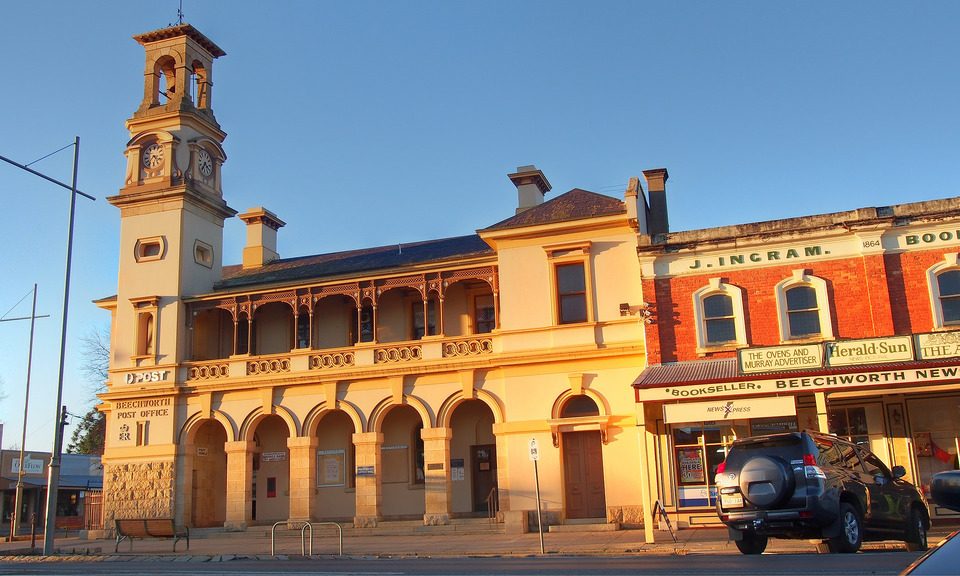Transition Towns 2006-14: The Power Of Just Doing Stuff
Awakening The Dreamer Symposium: Croydon Vic. 24 August
August 7, 2014Fleurieu Peninsula S A Stockman’s Challenge & Bush Festival
August 10, 2014Back in 2007 PWF was fascinated by the small Queensland town of Maleny’s relocalisation/Transition Town efforts and in 2014 it’s interesting to see the ‘big ideas’ expressed in ‘The Power Of Just Doing Stuff’ by Rob Hopkins, founder of the Transition Town Movement in 2006. The Make Wealth History website makes the following observations about Rob’s book…the:
“‘new normal’ of an unpredictable climate, rising energy prices and a staggering economy..no knight in shining armour ready to ride to the rescue of ailing communities. The government is cutting services, business is only going to go where the money is…
It’s up to us to get on with creating the alternatives right where we are, re-opening those shuttered shops, growing our own food and sourcing our own renewable energy…
Hopkins has his finger on the pulse of the growing and maturing Transition movement, and he has no problem backing it up. The strength of the book’s argument lies the vast haul of projects going on all around the world that demonstrate the principle. Community supported agriculture, pop-up shops, local currencies, community energy projects, just ordinary people getting on with it.
When you start doing something, you create visible change. A tangible social project, however small, speaks louder than any amount of promises and plans.”
The Deepening of the Transition Movement Since 2008
The Transition Movement began largely in response to peak oil with climate change quickly following though there’s always been an economic element which the financial crisis has brought to the fore.
This book emphasises:
“local resilience as economic development …our task is to build another economy, alongside the current energy intensive, debt generating, high carbon economy – one that is more appropriate to our times..
Relentless growth in GDP is no longer an appropriate or desirable idea”.
The Niggling Doubts
Transition and local solutions improve resilience and the wellbeing of individual places but does this create the cultural shift that we need to see change at the national level?
Rob acknowledges the fact that we can’t know this:
“I can’t guarantee that this will be enough…But we’re in unexplored territory now, and the current political and economic system certainly doesn’t look up to the task. As far as I’m concerned, getting on with building the alternatives ourselves looks eminently sensible.”
Some Background To Transition Towns
The Transition Movement began 2006 in Totnes, England, founded by permaculturist Rob Hopkins. In 2008 the number of participating communities increased and many localities became ‘official’ transition towns.
By May 2010 there were over 400 community initiatives recognized as official Transition Towns in the United Kingdom, Ireland, Canada, Australia, New Zealand, the United States, Italy and Chile.
In 2014…
Today in Victoria, Maroondah’s Transition Movement says:
“where there’s a community-led process this helps that town/village/city/neighbourhood become stronger and happier.
It’s happening in well over a thousand highly diverse communities across the world…these communities have started up projects in areas of food, transport, energy, education, housing, waste, arts etc. as small-scale local responses to the global challenges of climate change, economic hardship and shrinking supplies of cheap energy.
Together, these small-scale responses make up something much bigger, and help show the way forward for governments, business and the rest of us.
Really, it’s the opposite of us sitting in our armchairs complaining about what’s wrong, and instead, it’s about getting up and doing something constructive about it alongside our neighbours and fellow townsfolk. And people tell us that as a result of being involved in their local ‘transition initiative’, they’re happier, their community feels more robust and they have made a lot of new friends.’
A good afternoon’s read…


